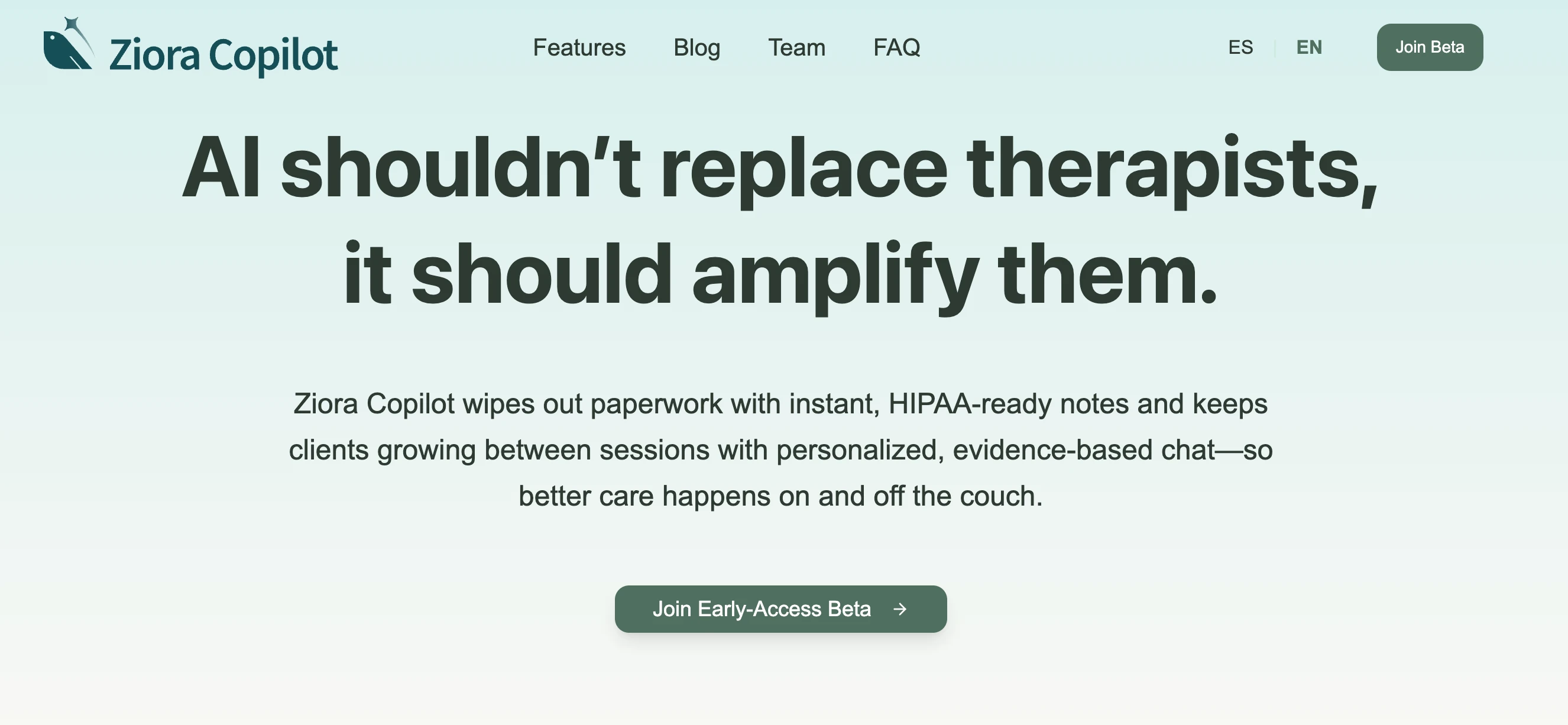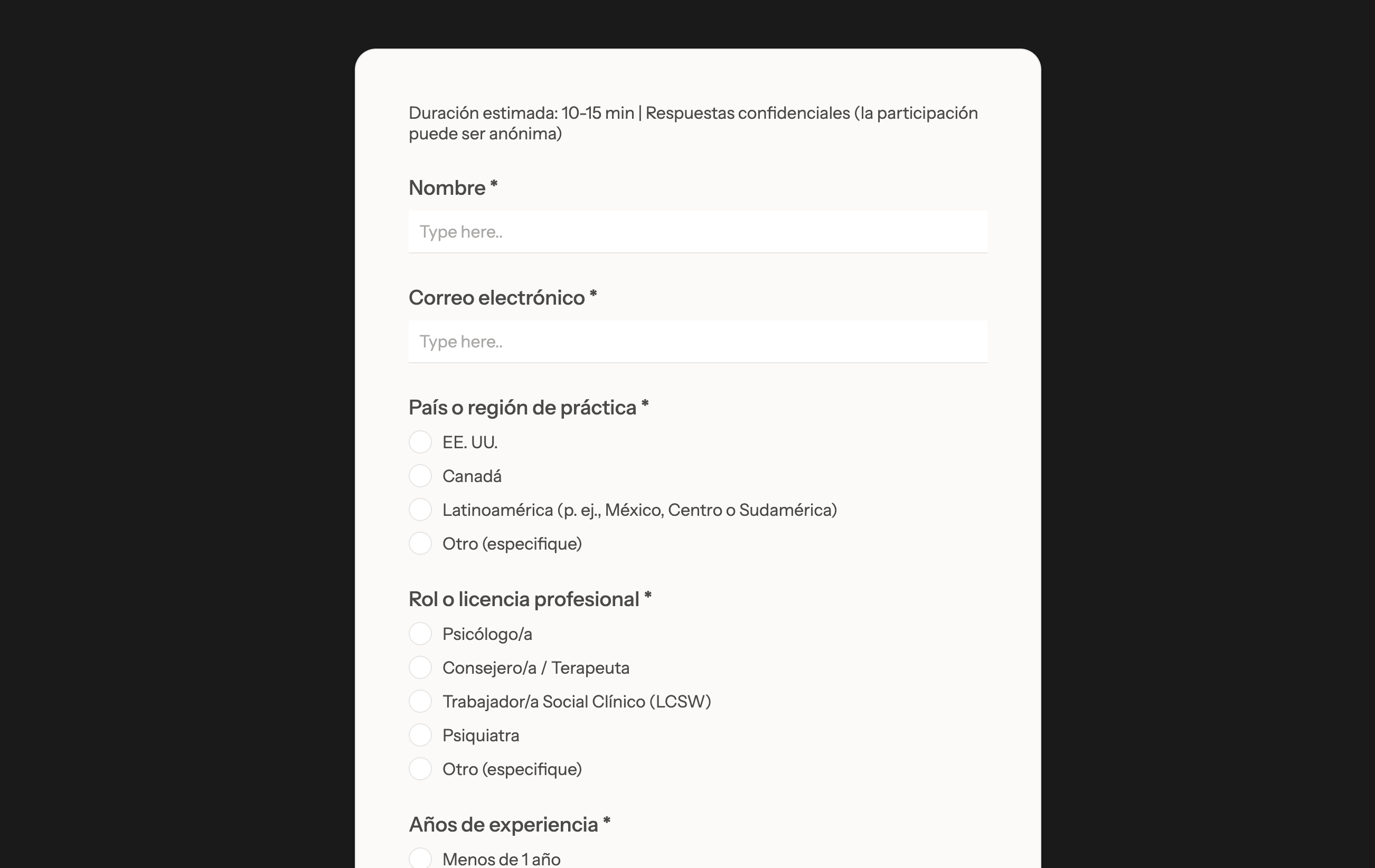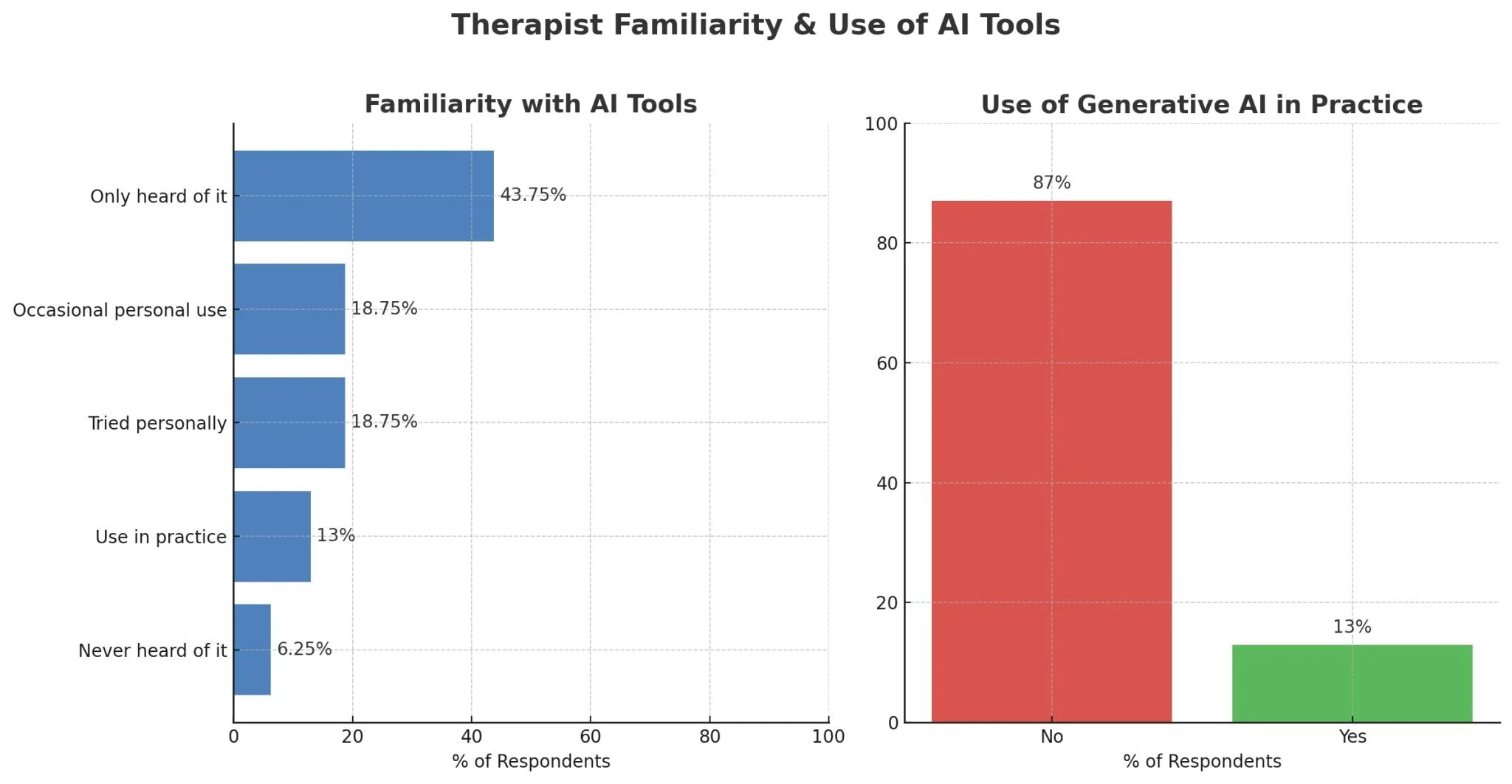Survey results: are mental health therapists using AI?

Mental health is deeply human work. It's nuanced, sensitive, and often resistant to anything that sounds remotely like "automation." So it’s no surprise that when artificial intelligence entered the chat, many therapists met it with a mix of curiosity, skepticism, and a dozen questions about ethics, practicality, and time.
Are you a psychotherapist unsure where AI fits into your practice? Or an entrepreneur trying to better understand the level of AI adoption in mental healthcare? Then this article is for you.
Ziora Copilot is a mental health start-up building an AI assistant that reduces paperwork with instant, HIPAA-ready notes and keeps clients growing between sessions with personalized, evidence-based chat. In order to make the tool as meaningful and useful for therapists, Ziora went straight to the source.
Using a Weavely-built survey, the team gathered direct input from practicing clinicians. They uncovered insights that will shape product direction, messaging, and even trust-building in a cautious market. And today, we’re sharing what they learned.
It's worth noting that many successful health tech products leverage healthcare mobile development services to ensure their solutions meet both regulatory requirements and real-world clinical needs.
Current challenges of mental health professionals
Mental health industry faces several ongoing challenges that affect both patients and therapists. Early dropout from therapy is a growing concern, with 25.3% of patients leaving treatment before it’s complete. Long wait times are also a barrier to care, averaging between 48 and 67 days. On a larger scale, untreated mental health issues contribute to an estimated $1 trillion in annual economic losses worldwide. For therapists, the administrative burden is a key stressor. Documentation alone can take up to 103 minutes per day. In fact, 74% of therapists report that paperwork reduces the time they can spend with their patients.
AI and mental health: growing interest, but unclear adoption
Ziora started to gain traction among clinicians who are tired of the documentation grind. As the American psychological association reports, the industry is experiencing ever-increasing demands on clinicians’ time, which drives interest in AI tools for streamlining administrative tasks, and thus decreasing burnout and increasing time for patient care.
However, according to the study on attitudes towards AI counseling, mental health professionals may hold biased, skeptical, or fearful attitudes towards AI in therapy. Psychologists are hesitant to adopt AI because they worry it could harm the therapist-client relationship, and some are also concerned that clients may feel uncomfortable seeing the use of AI.
As an early start-up for modern mental health care, Ziora co-founders wanted to define the exact opportunities they have for the innovation in the field. So, they conducted a survey.
The Weavely survey approach

Ziora used an AI-powered form builder Weavely to craft a lightweight survey targeted at mental health professionals across Latin America. It combined clean multiple-choice questions with free-text responses that allowed therapists to explain things in their own words. Thanks to Weavely’s AI features, the team was able to quickly generate well-phrased, relevant questions, making the whole process faster and more thoughtful from the start.
The survey asked therapists about:
- Their daily challenges, like documentation, scheduling, and burnout
- Time spent on admin work per therapy session
- Their familiarity with AI tools, from awareness to active use
- Reasons for not using AI, such as privacy concerns or lack of time
- Potential benefits and risks they associate with AI in therapy
- Basic background: country, role, and years of experience
Learnings: from a survey to real AI innovation ideas in mental healthcare

Key stat:
Only 13% of therapists were actively using AI in their professional work.
But over 60% said they were “open to exploring it”, especially if it helped reduce admin work.
Messaging angle:
Instead of selling AI as a tech revolution or a “smart assistant,” Ziora reframed it as a quiet, supportive partner. A therapist’s notetaking buddy. Not a clinical decision-maker. Not a diagnosis machine.
- Positioning AI as a human-in-the-loop support tool, not a replacement
- Emphasizing documentation relief, not therapeutic decision-making
- Creating content around the emotional toll of admin work in mental health
The survey insights are helping Ziora build trust in the mental health community and adjust the messaging when reaching out to therapists for one-on-one conversations.
The takeaway for other health startups?
If you're building tools for clinicians, especially in mental health, the bottom line is to learn from the people doing the work.
There’s a lot of noise in the AI space right now, but in fields built on trust, relationships, and regulation, real progress depends on how well you understand the people in the industry. Ziora went straight to the core and ran a thoughtful, well-structured survey, which they used to shape a product that actually fits into a therapist’s world.
So before writing code or crafting your next pitch, first ask yourself: Do we truly know what matters to the people we’re building for? If the answer is “not yet,” a good survey might be the best place to start.
For other health startups:
Start with empathy, validate with data, and build with the people you serve.
Need a survey?
Weavely is an AI-powered form builder that lets you create forms and surveys in seconds, for free. Just type a quick prompt about what you need, or upload a document, and Weavely will generate a polished, professional-looking survey you can share right away.

